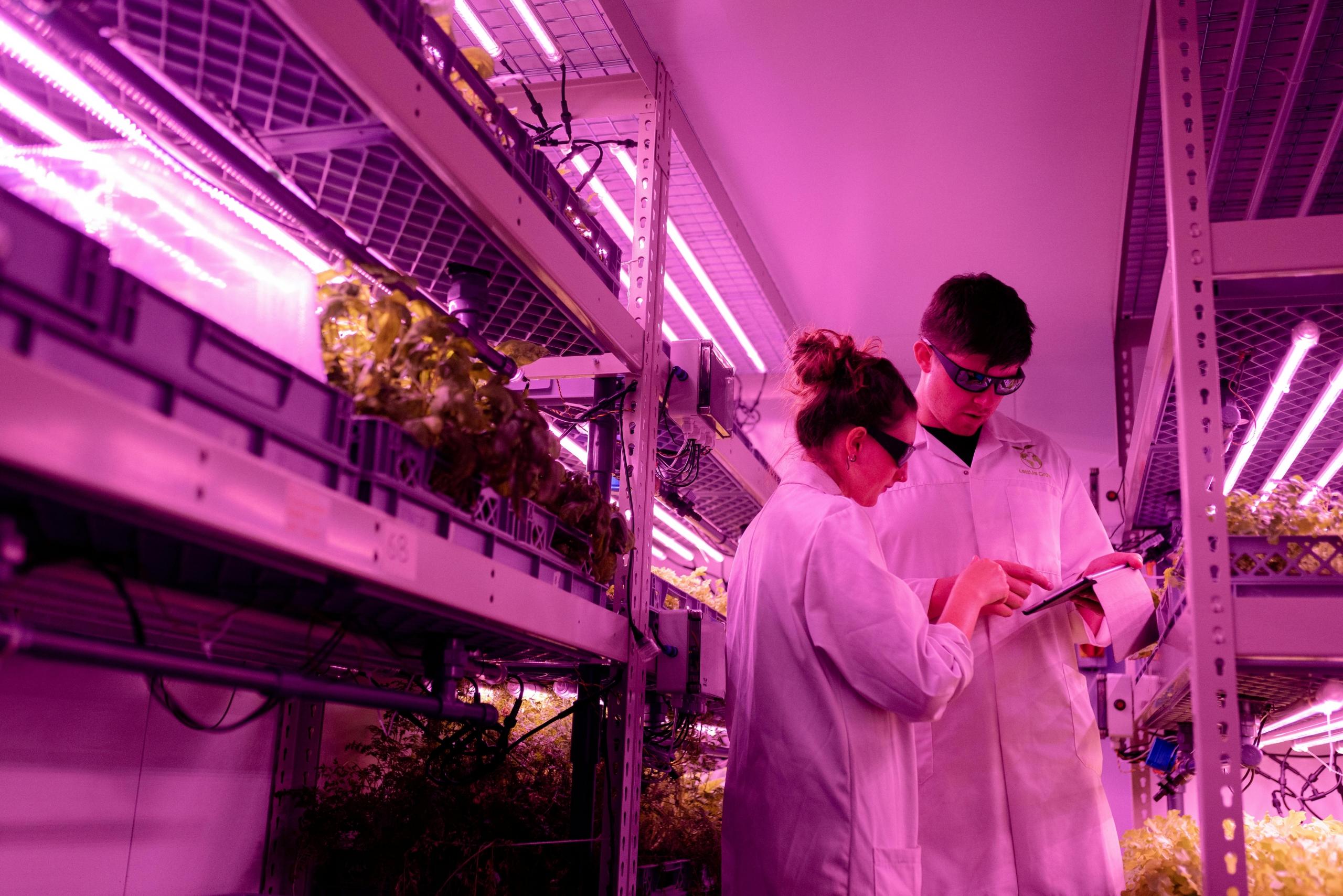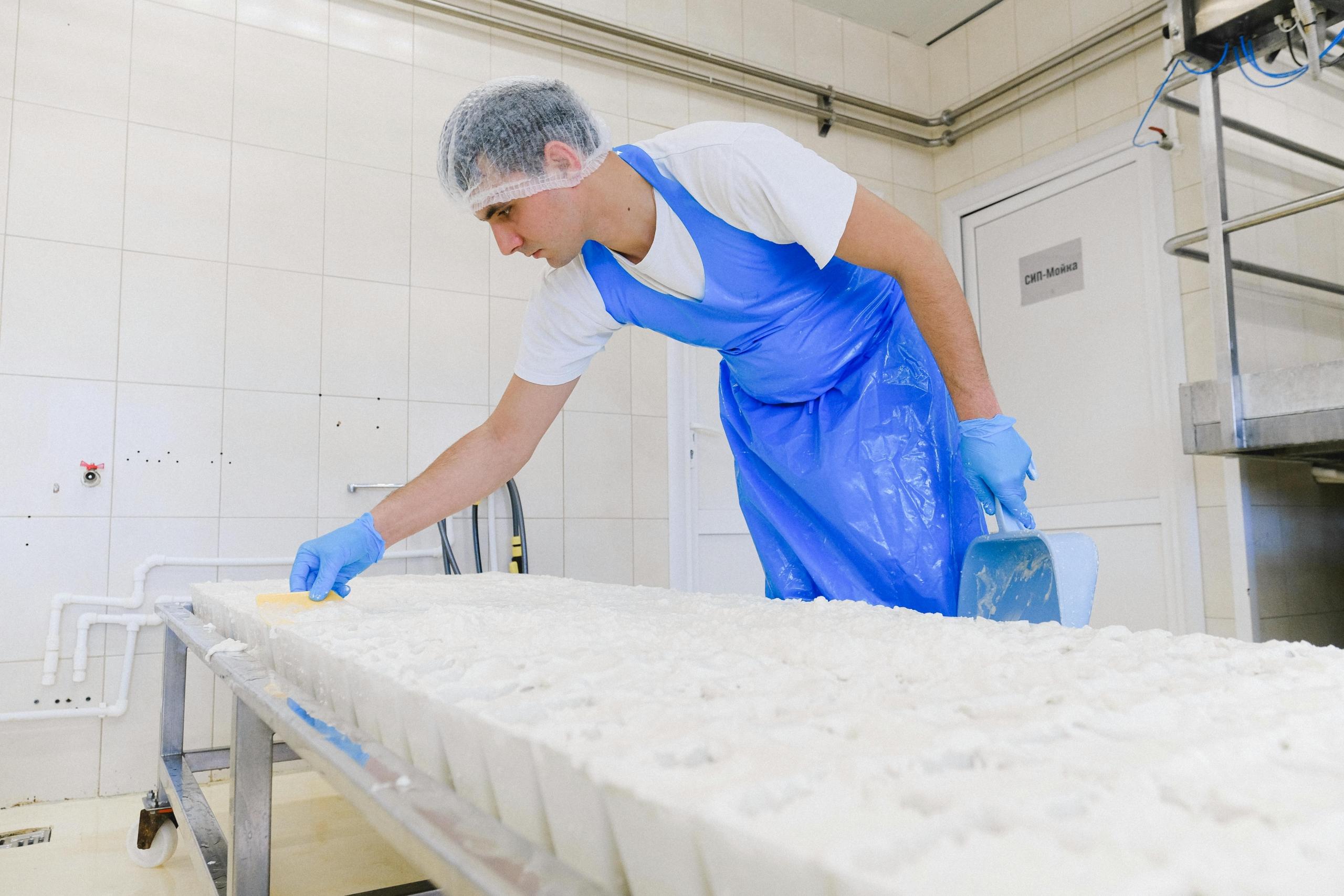Across South Africa universities present a myriad of food-related degrees, each one with nuanced curricula. The expanse of food science and technology courses is so vast that to summarise its many possibilities is almost a daunting task.
Amidst this labyrinth of options lies you—the individual with a potential penchant for food technology, an affinity for food microbiology, a fascination with food chemistry, preservation techniques, or a keen interest in human nutrition. Still, presenting every university's syllabus of food science and technology courses is not really possible.
Instead, in this article about food science courses, you will find out about the common subjects and food science requirements necessary for a successful academic pursuit.

Year One: Food Science and Technology Courses
As previously indicated, the realm of nutrition and food science necessitates a vast expanse of study. As a broad subject that includes food science courses, chemistry, food processing, soil and plant studies, food packaging, and preservation techniques, there is much to learn.
Broad as it is, every academic journey, including food science and technology courses necessitates a starting point. Despite slight differences across different universities, a foundational similarity exists for food science requirements during the first year of study.
Core subjects and food technology requirements commonly include:
- Biochemistry and metabolism
- Fundamentals of microbiology
- Understanding the living cell
- Introduction to food microbiology
- Molecular studies for Life Sciences
- Basics of nutrition and human physiology
- Introduction to food processing and engineering
- Farm to Fork exploration, including the food chain from agricultural production to consumption.
These first-year food science courses tend to be rigorous and complex which is why admission for food technology requirements means that students need to do well in one or more science subjects in matric.
This typical curriculum for food science and technology during year one applies to degrees that include subjects like food science, food technology with bioprocessing, nutrition and food science, and nutrition intertwined with food consumer science.
Should you have an additional interest in business then it would be wise to include business subjects like economics, as well as management and marketing courses that seamlessly complement your food science degree requirements.
Optional Courses

In a South African Food Science and Technology degree, there are optional courses, that cater to diverse interests and career paths within the food industry. These can help to expand the breadth of knowledge beyond the core subjects and include how to create new food items where taste, texture and nutritional value are all taken into account.
Courses in food packaging and preservation offer insight into innovative packaging materials and techniques to ensure food safety and extend shelf life. Food biotechnology may also explore the role of genetic modification to enhance crop harvests or how to create healthier food.
If you lean towards entrepreneurship or management, optional courses in food business management in the food industry are also available. These courses provide a comprehensive understanding of business strategies, marketing, and financial aspects, all specifically tailored to the food sector.
In addition, food science courses that focus on safety regulations and compliance equip students with the knowledge necessary to navigate and implement regulatory standards which ensure adherence to national and international food safety protocols.
Ultimately, these optional courses, all with a focus on food technology requirements within a Food Science and Technology degree in South Africa, empower students to tailor their education towards specific interests that can prepare them for specialised roles within the diverse and dynamic landscape of the food industry.Top of Form

Year Two Curriculum Choices
You may find that the intensity of the food science requirements workload escalates as you begin your second year of learning all about food science requirements.
Should you pursue the path of a food scientist, you can expect to unpack a meticulous look at microbiological hazards, food preservation, and the intricate biochemistry of enzymology. To do so, you will need a good understanding of food composition and properties which is provided alongside food processing on an industrial scale.
The basics of human nutrition fundamentals also form an important part of this comprehensive curriculum, which illuminates the spectrum of food-related phenomena, from microorganisms impacting food to its processing within both manufacturing plants and our bodies.
By contrast to year one of a second-year food technology student can expect to encounter a more tailored academic journey. Instead of enzymology, there’s an option to explore process engineering principles, providing valuable insights into food processing plant operations. In addition, optional subjects like food technology requirements for sport or exercise nutrition also examine food choices, nutrition regulation and consumer behaviour. Rather than government standards on food governance, this diverse range of study amplifies the depth of the food science requirements within the multifaceted domain of food technology.
Year Three Study Programme
Entering your third year as a budding food technologist may come with a breath of relief as the more challenging subjects fade into the background. The final stretch of your undergraduate journey moves into a realm of contemplation and focuses on advanced themes like quality assurance, food safety, aspects of food chemistry, research methodologies within nutritional and food sciences.
In addition, you can expect to learn more about product development, diet-disease relationships, and the intriguing sensory evaluation of food. Among these, sensory evaluation stands out as an enthralling area of study, particularly in its exploration of how our senses swiftly determine our food preferences and aversions.
Consider the captivating world of 'stinky tofu,' a dish notorious for its overpowering aroma found predominantly in China and Taiwan. Its intense scent can travel many blocks, leaving a lasting impression. Even renowned culinary explorer Andrew Zimmern, famed for sampling bizarre foods worldwide, did not enjoy consuming stinky tofu!
In this pivotal year, a wide spectrum of optional subjects awaits, all of which will add depth to your academic journey.
Exploring consumer attitudes toward food quality emerges as a pertinent choice amidst ongoing news highlights. For instance, recent recalls in the US concerning E-coli-contaminated romaine lettuce from California and labelling discrepancies in various UK food products emphasise the importance of public health and safety within the food industry.

Third year’s optional courses focus on customer attitudes towards food quality and also take a look at the realm of food and toxicology. These options allow for a nuanced understanding of consumer perceptions and the critical role of food safety in shaping industry practices.
As for food technology requirements, technologists encompass a diverse array of responsibilities. These professionals are tasked with applying scientific knowledge to ensure food safety, quality, and innovation across the food production chain. They evaluate and enhance food production processes, develop new products, conduct research on nutritional aspects, and navigate regulatory compliance to safeguard public health.
So, what aspects of the food technologist's role intrigue you the most?
Tips for Choosing Classes and Subjects
Many universities offer food technologist programmes which emphasises the significance of apprenticeships in the food industry for graduates as well as the profound impact on public health and safety. These institutions prioritise practical experience over immediate full-time employment and recognise the invaluable insights gained through apprenticeships with food-related entities.
So, what are the food science requirements for graduates?
Unlike conventional professions, securing a significant role straight after graduating with a food technologist degree is uncommon. Thus, it is wise to consider an extended undergraduate year in a work-study programme which can be very helpful. Various South African universities provide such programmes which necessitate direct inquiries and enrolment. Opting for this path could open up career avenues that might otherwise remain inaccessible with just a Bachelor's degree.
However, for those aiming to enrol for postgraduate studies, selecting undergraduate electives becomes increasingly important. Tailoring courses to ensure that food technology requirements for future specialisations are included becomes very important.
Remember that while lifestyle and nutrition courses might quickly captivate your interest, choose topics that are aligned with your future aspirations in this field.
To meet the food technology requirements of your future courses, make sure that you choose your optional subjects wisely from the beginning. This will help you to specialise in the area of your choosing more easily.
Hopefully, this insight will help you to navigate important choices ahead and shed light on the multifaceted landscape of food science technology.
Summarise with AI















